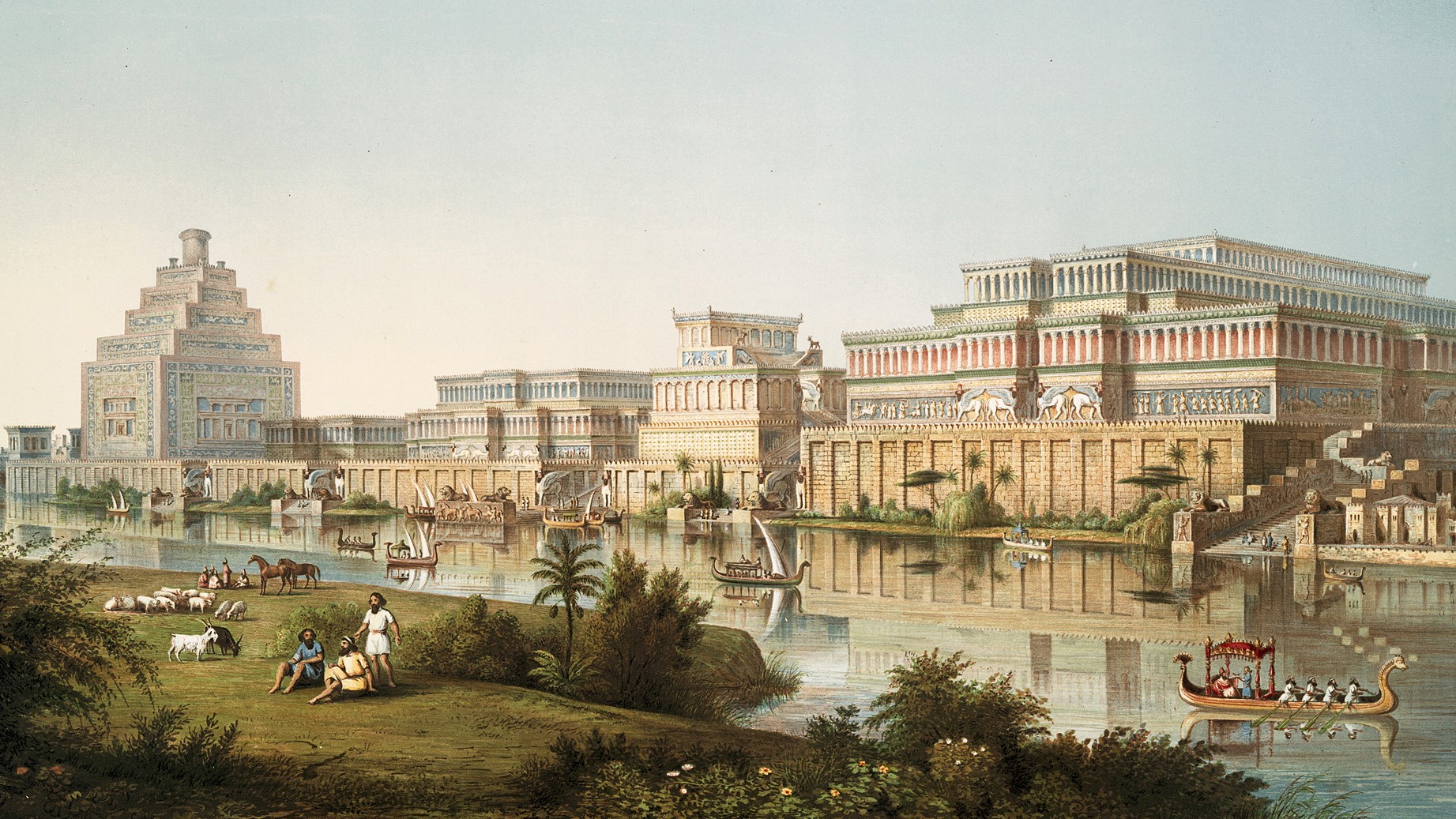
Jonah 3:1-5, 10
Ordinary B9
1 The wordA of the LordB came to JonahC a second time, saying,
that greatG city,H and proclaimI to it the messageJ that I tellK you.”
3 So Jonah set outL and went to Nineveh, according to the word of the Lord. Now Nineveh was an exceedingly largeM city, a three days’ walkN across.
4 Jonah beganO to go into the city, going aP day’s walk. And he cried out,Q “Forty days more, and Nineveh shall be overthrown!”R
5 And the peopleS of Nineveh believedT God;U
they proclaimed a fast,V and everyone, greatW and small,X put onY sackcloth.Z
10 When God sawAA what they did,BB how they turnedCC from their evilDD ways,EE
God changed his mindFF about the calamityGG that he had saidHH he would bringII upon them; and he did not doJJ it.
Image credit: “Artist’s impression of Assyrian palaces from The Monuments of Nineveh by Sir Austen Henry Layard, 1853.” “The Monuments of Nineveh, Vol 2 – Plate 1 – The Palaces of Nimroud Restored”
